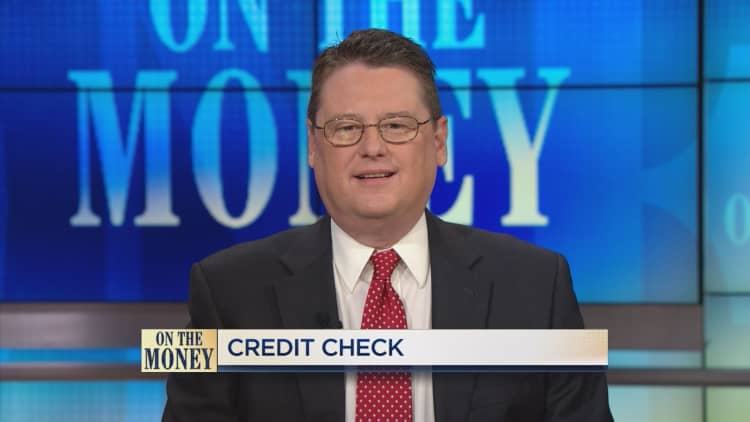
When it comes to identity theft, you may be putting yourself at risk without realizing it.
"Putting too much personal information out on social media is the most egregious example" of how consumers set themselves up, according to Jeff Faulkner, acting president and CEO of the National Foundation for Credit Counseling, or NFCC.
In the wake of the Equifax data breach, such personal details like where you grew up, where you vacation and who your friends are — which are all easily found on Facebook and Instagram — may be the missing link scammers need to access your accounts, he said.
It's been six months since hackers stole the personal data Equifax had collected on more than 143 million Americans. Last week, the credit monitoring firm said an additional 2.4 million Americans were affected.
In total, roughly 147.9 million Americans have been hit by the hack. It remains the largest data breach of personal information.
Yet there have been many others as well.
"The Equifax breach was the mother of all breaches but there have been breaches all along," Faulkner said. In fact, there are roughly over 1,500 breaches a year, the NFCC said.
In the year before the Equifax hack, about 15.4 million consumers were victims of identity theft or fraud in 2016, according to a separate report from Javelin Strategy & Research, and that was a 16 percent increase from 2015.
And still, most people still have not taken steps to find out whether their information is at risk. Half of U.S. adults said they have not looked at their credit report or credit score since the Equifax breach, according to a recent survey by CreditCards.com. Eighteen percent of adults have never checked their credit report or credit score, the report said.
We need to be doing everything we can to protect ourselves, I can't stress that enough.Jeff FaulknerCEO of the National Foundation for Credit Counseling
Faulkner recommends setting up notifications to track credit card transactions, checking your existing credit accounts for suspicious activity and pulling credit reports from AnnualCreditReport.com to check for new accounts in your name as well as putting a short-term or longer-term fraud alert on your report, which is free. The alert means that a lender seeking to approve an application must first contact you to verify the request is from you, not an imposter trying to take out a loan or credit card.
(For now, putting a more permanent credit freeze on your account can come at a cost, although Congress is considering a bill which would make credit-data freezes free across the board.)
"We need to be doing everything we can to protect ourselves, I can't stress that enough," Faulkner said.
If you're still worried about identity theft, see the infographic below for more tips on how to secure your information.
"On the Money" airs on CNBC Saturdays at 5:30 a.m. ET. Check listings for air times in local markets.
More from Personal Finance:
Equifax extends free credit freezes to June 30
50 percent of adults have not checked their credit since the Equifax breach
How to protect yourself after the Equifax breach: Assume you're affected


